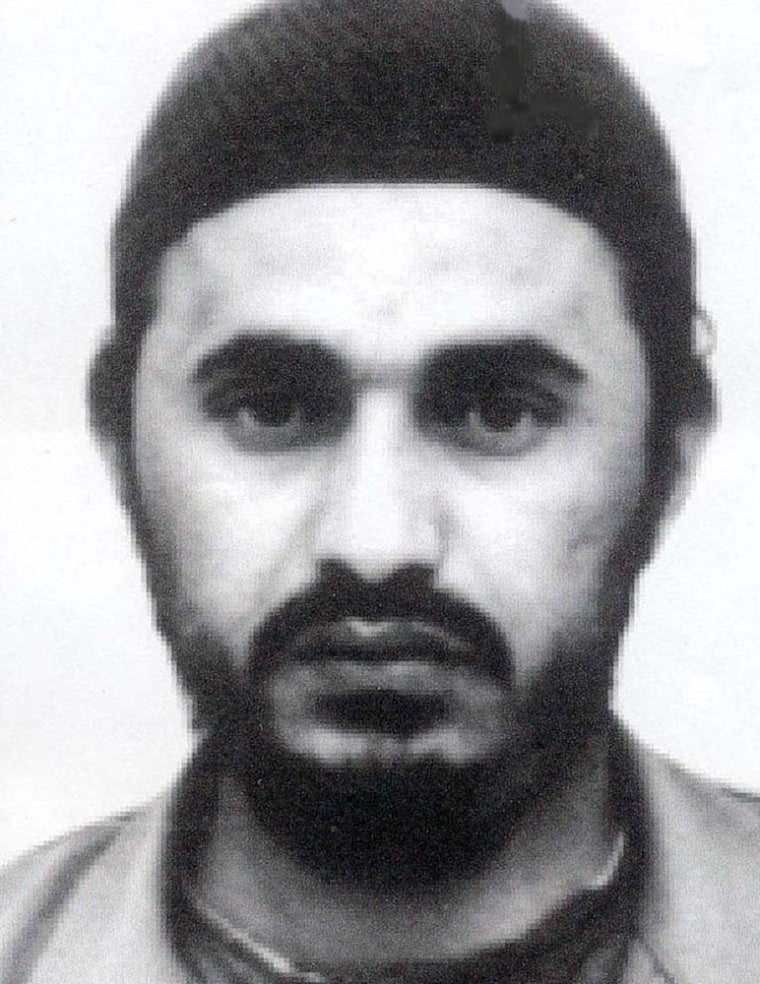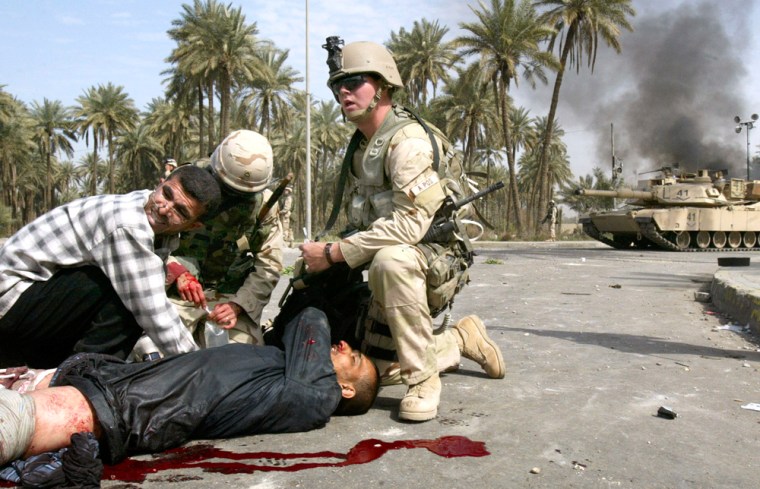In the immediate aftermath of the deadliest postwar bombing in Iraq on Tuesday, U.S. and Iraqi officials pointed the finger at the shadowy al-Qaida-linked terrorist group, Ansar al-Islam, and its leader Abu Mousab al-Zarqawi.
Only a month ago, U.S. officials released what they said was a letter by the Jordanian militant outlining a strategy of spectacular attacks on Shiites, aimed at sparking a Sunni-Shiite civil war.
The attacks "follow the blueprint laid out in the Zarqawi letter," one U.S. official said, speaking on condition of anonymity, while "the multiple simultaneous bombings are a trademark of al-Qaida."
If the link is proven, it means that more than half of those killed worldwide in terrorist attacks since Sept. 11, 2001, have been Iraqis.
An NBC News analysis of those killed by al-Qaida-linked terrorists since the 2001 attacks on the United States shows that Ansar al-Islam is currently the most effective of the al-Qaida affiliates, killing at a rate of nearly 100 a month over the past six months.
Even before the explosions in Baghdad and Karbala, half of the 1,200 killed by al Qaida-linked groups since Sept. 11, can be attributed to Ansar al-Islam.
Moreover, the single largest nationality affected by terrorist attacks since Sept. 11 is Iraqi, not American.
Before Tuesday's attacks -- in which scores of mostly Shiite pilgrims were killed in two Iraqi cities -- the analysis shows that 593 Iraqis have been killed since August 2003 in more than 40 attacks.
In comparison, only 25 Americans have been killed in al-Qaida terrorist attacks since September 11.
Soft targets
The number of American dead does not include military dead in Iraq or Afghanistan.
In Iraq, Ansar has mostly ignored the American military, who seem to be victims of Baathist resistance fights. Instead the terrorist group has focused on soft targets and in suicide bombings. Ansar, to date, has not claimed credit for any U.S. dead.
U.S. officials say every major suicide bombing in Iraq can be attributed to Ansar and Zarqawi himself says essentially the same thing, claiming in recently intercepted letter that he was responsible for some 25 attacks at the time of its writing.
The letter appears to be more than a month old. "We were involved in all the martyrdom operations -- in terms of overseeing, preparing, and planning-that took place in this country except for the operations that took place in the north," he wrote to al-Qaida leaders as he sought money for continued operations.
"Praised be to Allah, I have completed 25 of these operations, some of them against the Shia and their leaders, the Americans and their military, the police, the military, and the coalition forces. There will be more in the future, God willing. We did not want to publicly claim these operations until we become more powerful and were ready for the consequences."
In mid-February, the United States doubled its reward for the capture of al-Zarqawi to $10 million.
Before Tuesday, the United States believed Ansar was responsible for the deaths of the 593 Iraqis along with 55 foreigners -- 22 U.N. workers, seven Spanish intelligence officers, 19 Italian police, four Bulgarian troops, two Pentagon contractors and a South African hotel worker, making for a grand total of 648.
That means that more than half those killed in terrorist attacks worldwide since Sept. 11 have been killed in Iraq.
Changing role?
Ansar al Islam began as an Islamic Kurd group but shifted its role after the U.S. assault in Afghanistan.

At the end of 2001, the original Kurds were joined by Arab fighters at their base in northern Iraq and then after Operation Iraqi Freedom, began to plan and carry out attacks.
Now, according to officials, Zarqawi is trying to expand his operations, forming a new umbrella group, Ansar al Sunnah.
Asnar al Sunnah is now "trying to unite the jihadist elements in Iraq, to broaden A-I's appeal. They are setting themselves up as an umbrella organization for the jihadis, with the original A-I at its core," one U.S. official said, speaking on condition of anonymity.
As a result, Ansar al-Sunnah has set up a "significant propaganda operation" to recruit those already in Iraq and those who might want to join them. "We don’t think it’s working, but that is what they are trying to do," said the official.
Most of the attacks have been suicide bombings, which have reached 40.
There have also been an ambush on a convoy and a four-pronged assault on an Iraqi jail, the former killing the seven Spanish intelligence officers on Nov. 30 and the latter killing 27 Iraqi policemen and jailors at an Iraqi prison on Feb. 15.
Although breaking down Iraqis into Kurd, Shia and Sunni is next to impossible, the two biggest attacks before Tuesday --both with more than 100 dead -- occurred at a Shia religious site, the Imam Ali Mosque in Najaf, -- and at the offices of the two Kurdish political parties--the KUP and KDP--in Irbil, killing 109.
